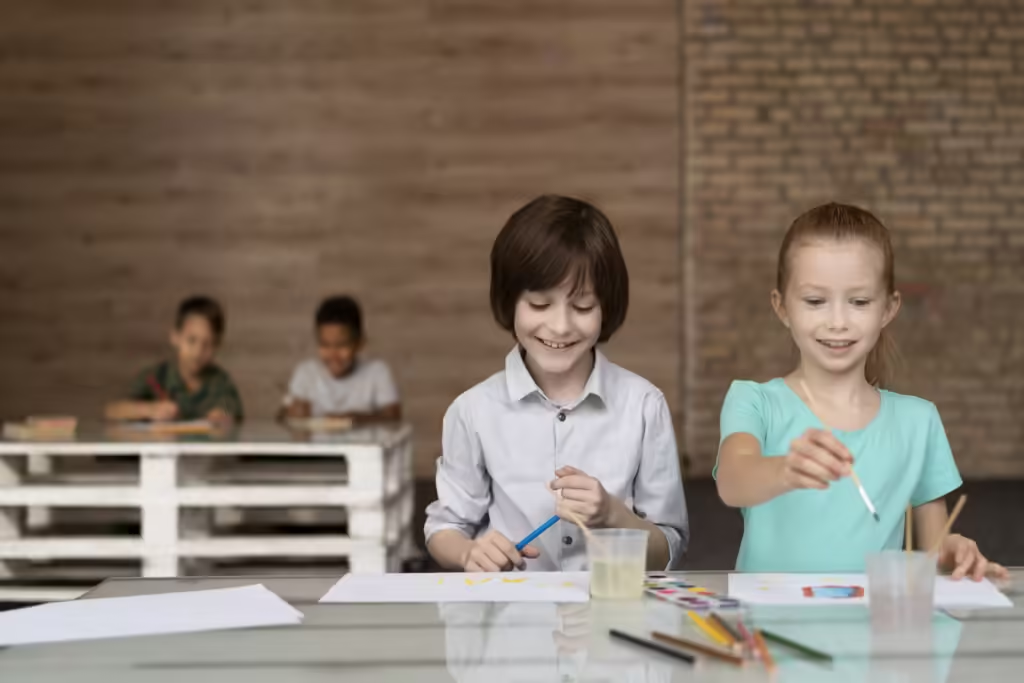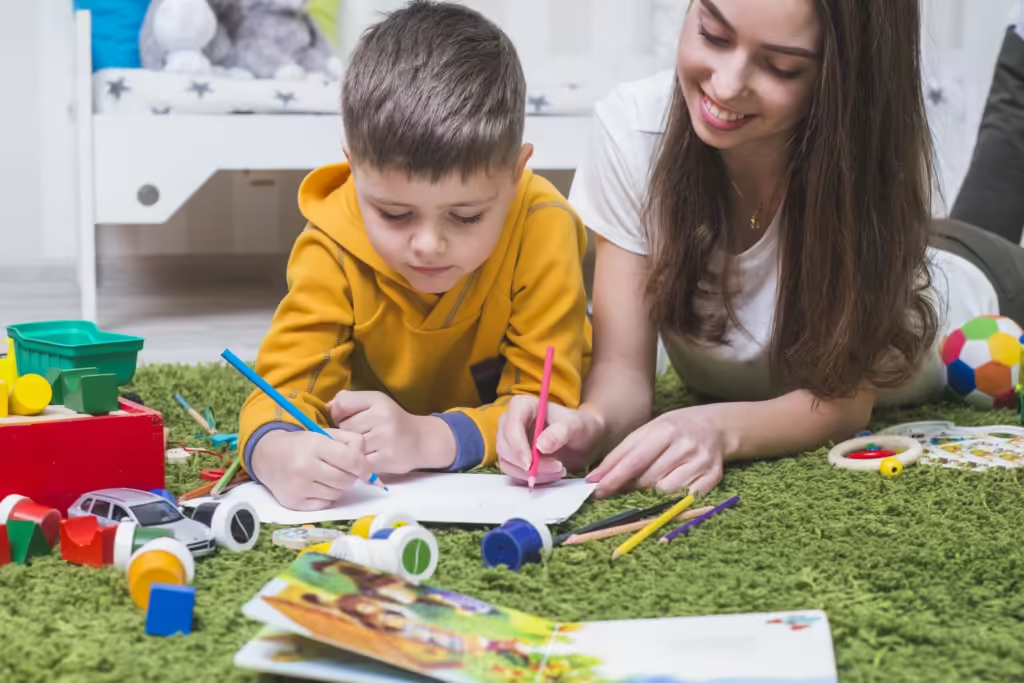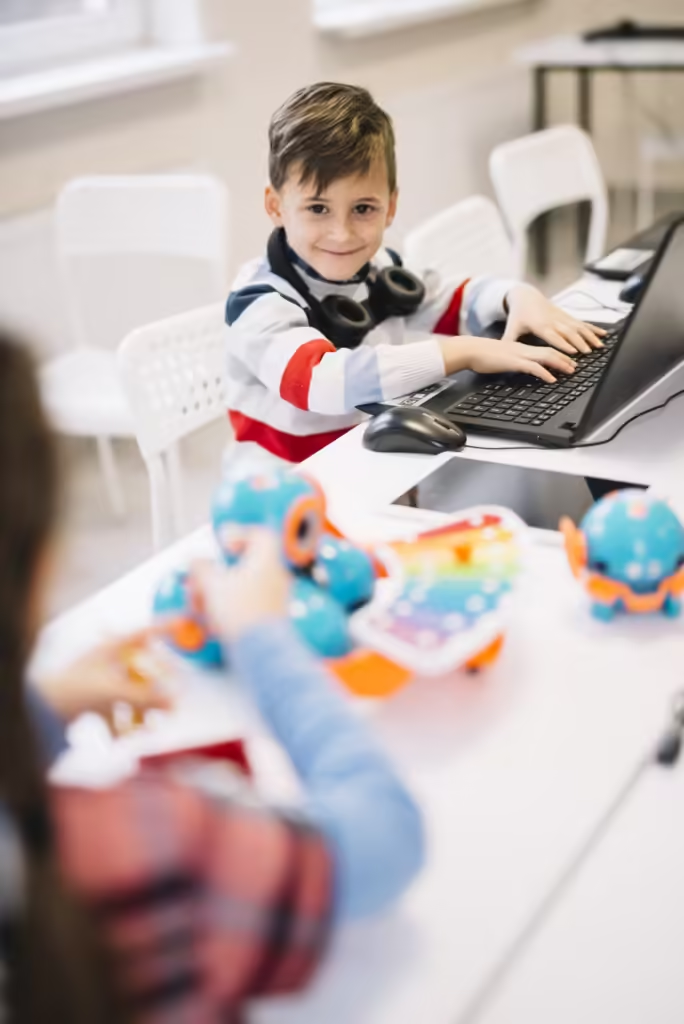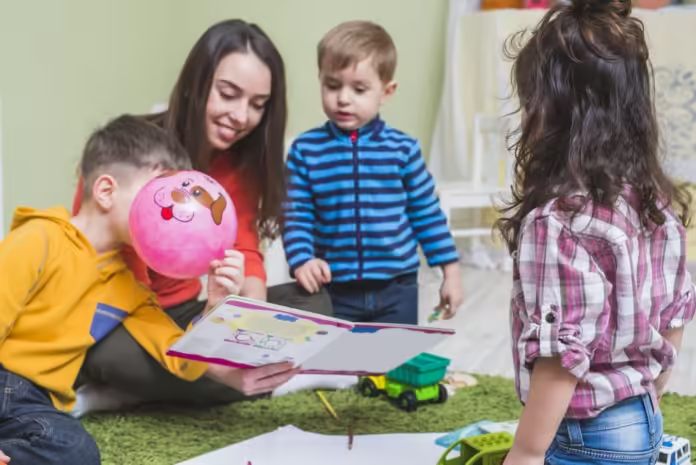Table of Contents
Primary Schooling: Laying the Foundation for Lifelong Learning
What is Primary Schooling?
Primary schooling marks the beginning of formal education and focuses on creating a strong foundation for children’s academic, social, and emotional growth. Typically encompassing grades one to six, primary education aims to develop essential skills that will serve children for a lifetime.
Definition and Overview
Primary schooling includes the first few years of structured learning, usually for children ages 5-12, depending on the country. It covers the basics in subjects like reading, writing, math, and introduces children to science, social studies, and the arts.
Importance of Primary Schooling
These years are critical as they help build a solid base of knowledge and skills. Primary schooling also promotes the development of confidence, curiosity, and creativity—traits that empower children throughout life.

The Role of Primary Schooling in Child Development
Primary schooling is not just about academics; it also plays a key role in holistic child development, shaping young learners socially and emotionally.
Social and Emotional Growth
Through interactions with teachers and peers, children learn empathy, cooperation, and self-regulation. These skills help them thrive in group settings and handle emotions constructively.
Cognitive Development
Early schooling introduces children to structured thought processes, problem-solving, and critical thinking, enabling them to process information and make informed decisions.
Key Milestones in Primary Education
Each stage of primary education introduces new concepts and milestones that contribute to a child’s growth and learning.
Early Learning Foundations
Young children start with basic literacy and numeracy, such as identifying letters and numbers, and gradually move toward reading simple sentences and solving basic math problems.
Academic Skills Development
By the end of primary schooling, most children can read fluently, solve math problems independently, and engage with more complex ideas in science and history.
Core Subjects in Primary Schooling
Primary education covers several core subjects, each building vital skills for future learning.
Reading and Literacy Skills
Learning to read is perhaps the most essential part of primary schooling. Reading unlocks knowledge across all subjects, enabling children to access a world of information.
Mathematics Essentials
Math skills developed in primary schooling range from basic counting and arithmetic to introductory concepts in geometry and fractions.
Benefits of a Strong Primary Education
The value of primary schooling goes beyond academics. A good primary education offers a wide range of benefits, laying the groundwork for future success.
Building Confidence and Independence
Completing tasks and mastering new skills builds children’s confidence, encouraging them to become more independent.
Enhancing Problem-Solving Skills
Primary schooling equips children with tools to tackle problems logically, an essential life skill.
Primary Schooling Around the World
Educational practices vary globally, but the core goals of primary schooling remain the same: fostering foundational skills and nurturing young minds.
Differences in Curriculum
Countries differ in their educational focus, with some emphasizing creativity and the arts, while others focus on science and math from an early age.
Cultural Influences on Education
Culture often shapes what is taught and how it’s taught, leading to diverse approaches in primary education.
The Role of Teachers in Primary Schooling
Teachers play a significant role in shaping children’s educational experiences, particularly in primary school.
Teaching Techniques
Effective teachers use a mix of lectures, hands-on activities, and collaborative learning to keep young learners engaged.
Impact on Young Learners
A supportive teacher can make a profound impact, fostering a love for learning that lasts a lifetime.

Visit: Early Childhood Education
How Parents Can Support Primary Education
Parents play a vital role in their child’s primary schooling journey, offering support that enhances their learning experience.
Encouraging Learning at Home
Engaging in educational activities at home, such as reading together, reinforces classroom learning.
Communicating with Teachers
Staying in touch with teachers helps parents understand their child’s progress and address any challenges early on.
Common Challenges in Primary Schooling
Primary schooling can present certain challenges, from addressing individual learning needs to managing classroom dynamics.
Addressing Learning Differences
Some children may require specialized support to achieve their best, which can sometimes be difficult to access in primary education settings.
Managing Classroom Behavior
Teachers work to create an environment where all students feel safe and focused, but behavior management is always a key part of primary education.
The Shift from Early Childhood Education to Primary Schooling
Primary education differs from preschool in structure, teaching methods, and expectations.
Differences in Learning Approach
While preschool focuses on play-based learning, primary schooling emphasises structured lessons and academic progress.
Adjusting to New Routines
Children must adjust to new routines, which may include longer school hours and more structured class time.

Digital Learning in Primary Schools
Technology is becoming an integral part of primary schooling, with digital tools enhancing traditional teaching methods.
The Role of Technology in Learning
Digital tools can make learning more engaging, offering interactive activities and instant feedback.
Benefits and Drawbacks
While technology can be beneficial, it’s essential to balance screen time to avoid dependency and overstimulation.
Extracurricular Activities in Primary Schooling
Activities outside the classroom are crucial for a well-rounded primary education experience.
Importance of Play and Sports
Physical activities foster teamwork, discipline, and a healthy lifestyle.
Creativity through Art and Music
Arts and music offer children an expressive outlet and enhance creative thinking.
Assessment and Evaluation in Primary Schooling
Assessments help track a child’s progress and identify areas for improvement.
Standardised Testing
Standardised tests are common but are only one measure of a child’s abilities and progress.
Measuring Progress and Growth
Ongoing assessments help teachers tailor their approach to each student’s needs.
Future Trends in Primary Education
Education is evolving, with new methods and technologies shaping the future of primary schooling.
Innovations in Teaching Methods
From blended learning to personalised education plans, innovations aim to make learning more effective and enjoyable.
Emphasis on Emotional Intelligence
Modern curricula are beginning to prioritise social-emotional learning, equipping children to navigate life with resilience and empathy.
Conclusion and the Lifelong Impact of Primary Education
Primary schooling creates a strong foundation for academic and personal growth, setting children up for future success. With supportive families, skilled teachers, and well-rounded programs, primary education plays an essential role in nurturing informed, confident, and compassionate individuals.
FAQs
1. What age group does primary schooling cover?
Primary schooling generally includes children aged 5 to 12, depending on the country’s education system.
2. How does primary education impact future learning?
Primary schooling builds foundational skills in reading, math, and critical thinking, essential for higher education and lifelong learning.
3. Why is primary schooling important for social development?
Primary education provides opportunities to interact with peers and teachers, helping children develop social skills and emotional resilience.
4. What are the core subjects in primary schooling?
Core subjects include reading, writing, math, science, and social studies, with an emphasis on foundational skills.
5. How can parents support their child’s primary education?
Parents can support learning by reading with their child, engaging in educational activities at home, and maintaining communication with teachers.

